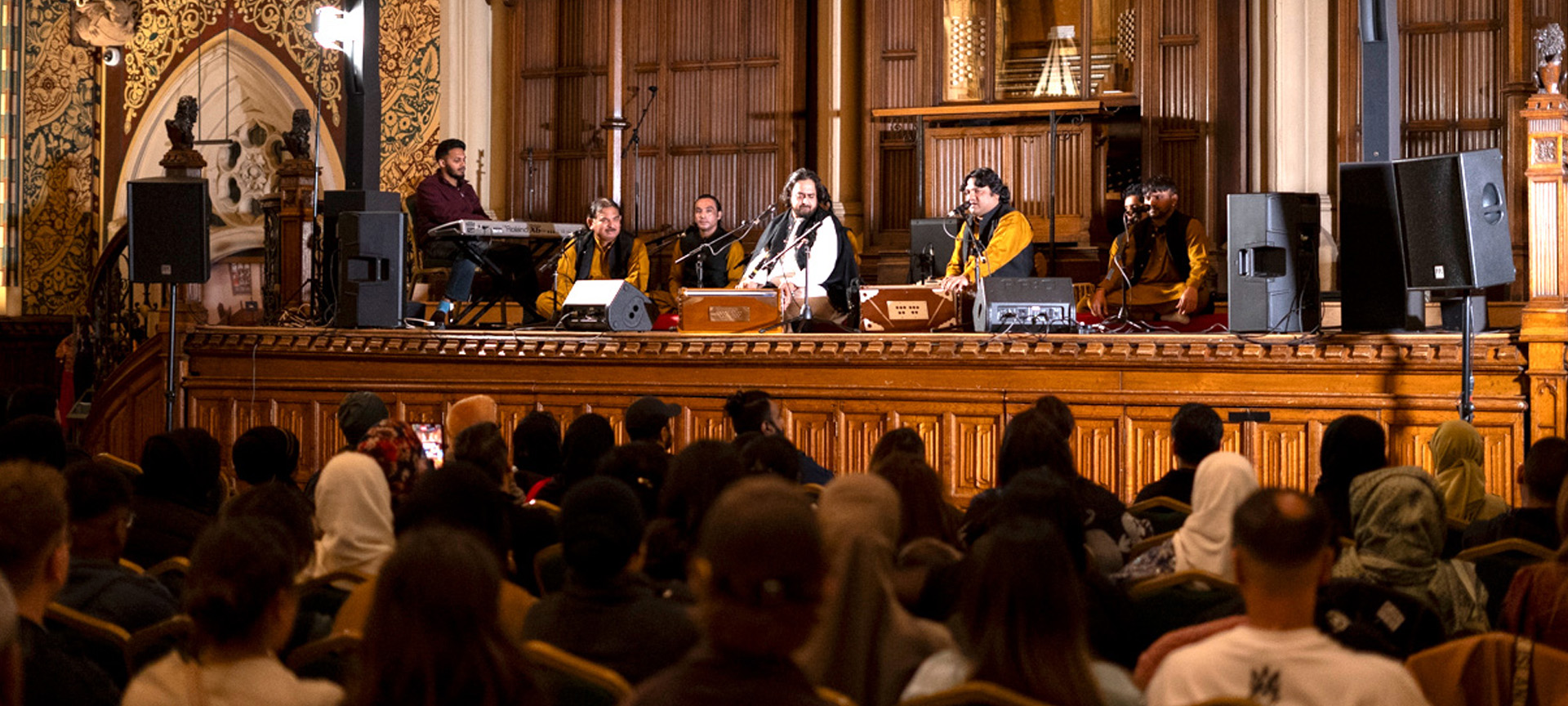
The Evolution of Qawwali
by admin October 13, 2024Qawwali, the soulful genre rooted in Sufi mysticism, continues to enchant global audiences with its deep spiritual resonance. Legends like Nusrat Fateh Ali Khan and emerging talents such as Hamid Ali Naqeebi have each played pivotal roles in transforming qawwali for diverse audiences. As qawwali gains a modern identity, it remains a cherished art form, with artists innovating within its timeless essence.
Nusrat Fateh Ali Khan: The Global Face of Qawwali
The remarkable global reach of qawwali began with Nusrat Fateh Ali Khan, whose collaborations with artists like Peter Gabriel brought this art form to mainstream Western music. In the 1980s, Gabriel, captivated by Khan’s vocal power and emotive range, invited him to perform at the WOMAD (World of Music, Arts, and Dance) festival, founded by Gabriel himself. Khan’s performances, marked by a blend of traditional lyrics and rhythms, showcased qawwali’s universality, and his collaborations with Gabriel on tracks like “Signal to Noise” helped expose new audiences to the genre’s spiritual depths. These collaborations highlighted how qawwali, rooted in centuries-old Sufi traditions, could resonate deeply across cultural boundaries.
Khan’s regular appearances at WOMAD festivals globally turned qawwali into a world music sensation, drawing fans from Europe, North America, and beyond. WOMAD continues to celebrate qawwali, hosting new-generation qawwals each year, keeping the genre alive for international audiences. This representation has set the stage for artists like Hamid Ali Naqeebi, who honor qawwali’s legacy while appealing to contemporary listeners.

HAMID ALI NAQEEBI: The Modern Qawwali Virtuoso
Hamid Ali Naqeebi, hailed as one of the UK’s leading qawwals, bridges traditional Sufi music and modern soundscapes, offering a fresh yet authentic take on qawwali. Deeply inspired by Nusrat Fateh Ali Khan, Naqeebi began his musical journey at a young age, mastering the harmonium and developing a vocal style that resonates with both young and seasoned qawwali fans. His commitment to Sufi music stems from a spiritual lineage connected to Baba Naqeebi Ullah Shah, adding a spiritual depth to his artistry.
Naqeebi’s performances capture qawwali’s classical spirit while embracing modern musical influences that captivate audiences across generations.
Naqeebi’s versatility shines in his work with the Pakistani and Bollywood music industries, including OSTs and tracks that balance qawwali with contemporary genres. His presence at high-profile concerts, cultural events, and festivals across the UK has established him as a modern ambassador of qawwali, especially for the South Asian diaspora. His website attracts fans from around the globe, showcasing his diverse performances and compositions that pay homage to traditional qawwali while innovating for todays audience.

The Global Influence of Qawwali Music
The lasting impact of qawwali artists like Nusrat Fateh Ali Khan and Hamid Ali Naqeebi illustrates the genre’s adaptability and relevance. As qawwali continues to grace global stages—from WOMAD festivals to international concert halls—it serves as a reminder of music’s power to connect and inspire. Both Khan and Naqeebi have contributed to qawwali’s legacy, each artist sharing Sufi spirituality and the genre’s poetic beauty with new audiences, blending tradition with evolution. The influence of qawwali on world music is undeniable, with each new performance continuing to draw listeners into its mystical, timeless appeal.




Leave a comment